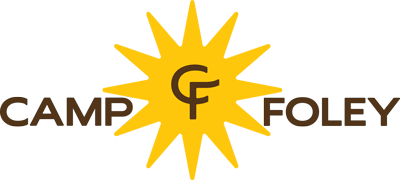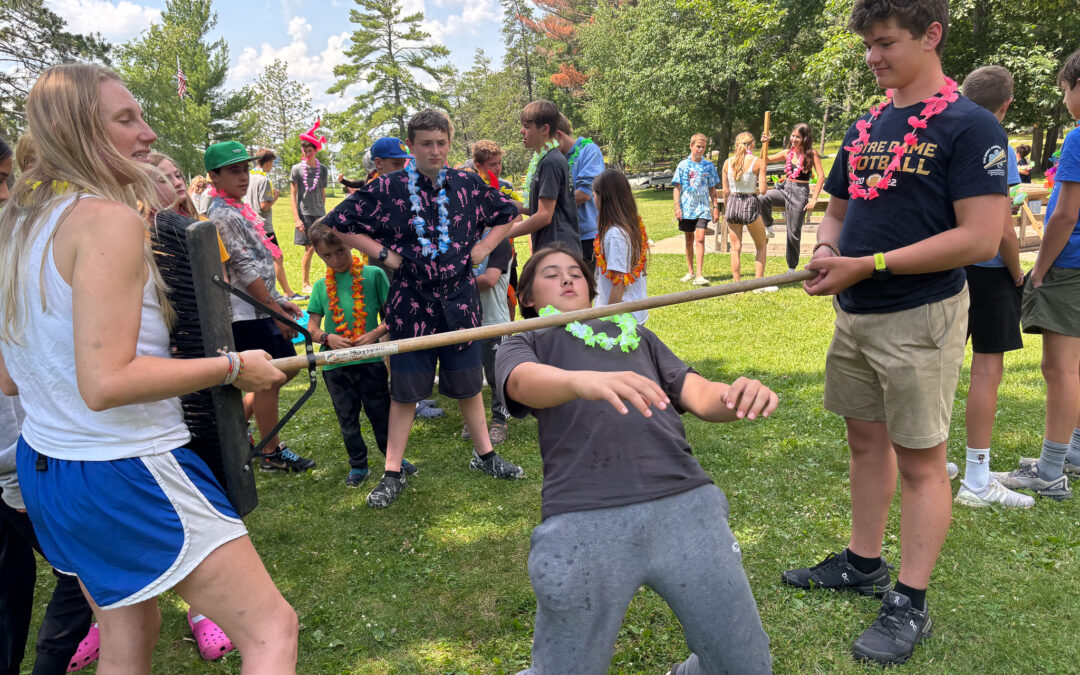At Camp Foley, we believe that camper wellbeing is the foundation for a successful and enriching camp experience. Wellbeing isn’t just about physical health—it encompasses social, emotional, and spiritual health as well. When campers feel safe, supported, and engaged, they can fully participate in all that camp has to offer.
Setting Campers Up for Success
Ensuring camper wellbeing starts long before they arrive at camp. Parents play a crucial role in providing information that helps us create a supportive environment. Through forms like the Camper Application, Camper Information Form, and Camper Health History, parents share important details such as special considerations, personal goals, and medical needs. This allows our staff to offer individualized support and ensure that every camper has the tools they need to thrive.
If a parent feels their child would benefit from additional support, they can also arrange a pre-camp discussion with our Executive Director, Alli Faricy, to develop a plan tailored to their camper’s needs. We appreciate and rely on the honesty of parents to help us provide the best possible experience for their child.

Encouraging Participation at Camp
Camp is all about participation, but it also offers a variety of choices. Some activities, like archery or waterskiing, are based on individual preference. Others, like evening programs, require campers to compromise and work as a team. And some, like cabin cleanup, are necessary responsibilities that come with community living. Our staff is trained to support campers through these different experiences, ensuring they feel included and encouraged every step of the way.
Understanding Discomfort vs. Feeling Unsafe
A key part of camper wellbeing is recognizing the difference between feeling uncomfortable and feeling unsafe. Trying new things—like sleeping away from home for the first time or attempting a new skill—can feel uncomfortable, but that discomfort can lead to growth, confidence, and independence. Our staff helps campers navigate these feelings and turn nervousness into excitement.
However, if a camper ever feels unsafe, whether due to how they are being treated or another concern, we encourage them to advocate for themselves by speaking with a trusted staff member. Creating a supportive environment where campers feel heard and valued is a top priority at Camp Foley. For new campers we highly encourage having a zoom meeting before camp with our Director of Camper Experience Ally Daily, you can schedule a chat with her here. This helps them know even before camp starts who their support system will be during camp.
Teaching Self-Advocacy
Self-advocacy is an essential skill that helps campers express their needs, make informed decisions, and take responsibility for their experiences. Before camp, parents can help their child develop self-advocacy skills by discussing the following key elements:
- Understanding personal needs
- Identifying helpful support systems
- Communicating needs effectively
- Reflecting on experiences and learning from them
By equipping campers with the ability to speak up for themselves, we empower them to navigate camp life with confidence. A great example of self advocacy at Camp Foley is each morning during our health checks. Staff will ask campers how they are physically feeling, and they should advocate for themselves if they feel unwell in anyway, so the nurse can follow through with them later in the day.

Self-Care Strategies for Campers
Camp is a busy, social environment, and finding moments for self-care can be essential. Here are some ways campers can maintain balance during their stay:
1. Embrace Camp Life
Fully engaging in camp activities, forming new friendships, and disconnecting from technology helps campers get the most out of their experience. Encouraging an open mindset before camp starts can set the tone for a great summer.
2. Balance Social Time and Alone Time
While camp is highly social, everyone needs a little downtime. Daily rest periods provide quiet time where campers can recharge by reading, writing letters, or listening to music. Parents can help by sending books, journals, or craft supplies for their camper to enjoy during this time. If your curious if an item will work well for rest period, reach out to Ally.
3. Use Free Time Wisely
After a full day of activities, Free Time allows campers to choose how they’d like to unwind—whether that’s playing sports, crafting, relaxing in a hammock, or enjoying time with friends. Campers should be encouraged to use this time in a way that feels best for them.
4. Talk About What Works for Them
Having a pre-camp discussion about personal self-care strategies can help campers feel prepared. Whether they need occasional alone time, reassurance from a counselor, or a structured routine, knowing what works for them can make a huge difference.
At Camp Foley, we are committed to helping campers succeed and thrive. Through a partnership between parents, campers, and our dedicated staff, we create a supportive environment where every camper can feel confident, safe, and excited about their summer adventure. With the right preparation and mindset, camp becomes a place for growth, self-discovery, and lifelong memories.
Build up resilience in your child this summer and register today!

